Introduction
The Mystery of Sodium Bicarbonate in Medicine
Picture this: It’s a late – night study session or a high – stress workday, and you’ve been snacking on spicy foods or drinking too much coffee. Suddenly, a burning sensation starts in your stomach, accompanied by a feeling of discomfort and a sour taste in your mouth. You rummage through your medicine cabinet and find a small bottle of a white powder or tablets. You take a dose, and within minutes, the pain and discomfort start to subside. Chances are, what you took was sodium bicarbonate, a simple yet incredibly versatile substance in the world of medicine.

This common experience of using sodium bicarbonate to soothe an upset stomach is just the tip of the iceberg when it comes to its medical applications. Sodium bicarbonate, also known as baking soda in its household form, has been used in medicine for centuries. But what exactly is it, and how does it work in the human body? More importantly, beyond treating an occasional bout of heartburn, what other medical conditions can it be used for?
As we delve deeper into the world of sodium bicarbonate in medicine, we’ll explore its chemical properties, the science behind its therapeutic effects, and the wide range of medical scenarios where it plays a crucial role. From the treatment of acid – base imbalances in critically ill patients to its potential in cancer treatment research, the applications of sodium bicarbonate in medicine are both fascinating and far – reaching. So, let’s embark on this journey to demystify the role of sodium bicarbonate in healthcare.
1. Chemical Identity of Sodium Bicarbonate
1.1 Basic Chemical Information
Sodium bicarbonate, with the chemical formula NaHCO3, is an inorganic compound(read article “what is sodium bicarbonate” for more details).
Its solution is weakly basic, which is fundamental to many of its medical applications, especially in treating conditions related to acid – base imbalances.
1.2 Chemical Reactions Relevant to Medical Applications
Acid – Base Reaction with Stomach Acid
One of the most well – known chemical reactions of sodium bicarbonate in a medical context is its reaction with stomach acid, which is mainly hydrochloric acid (HCl). The reaction between sodium bicarbonate and hydrochloric acid is a classic acid – base neutralization reaction.

This reaction effectively reduces the concentration of hydrochloric acid in the stomach, thereby alleviating the symptoms of acid – related discomfort such as heartburn, which is caused by the reflux of acidic stomach contents into the esophagus.
Role in Acid – Base Balance in the Body
Sodium bicarbonate plays a crucial role in maintaining the acid – base balance in the human body.
In medical situations where there are severe acid – base imbalances, such as in cases of metabolic acidosis (a condition where the blood is too acidic), sodium bicarbonate may be administered intravenously to help correct the pH by providing additional bicarbonate ions to buffer the excess acid.
2. Therapeutic Uses
2.1 Treating Digestive Disorders
Heartburn and Acid Indigestion
Heartburn and acid indigestion are common digestive discomforts that many people experience at some point in their lives. Since the esophagus lacks the protective lining that the stomach has to withstand acid, the acid irritates the esophageal lining, causing the characteristic burning feeling.
Sodium bicarbonate comes to the rescue in these situations through its acid – base neutralization property. This reaction effectively reduces the concentration of acid in the stomach, alleviating the symptoms of heartburn and acid indigestion.
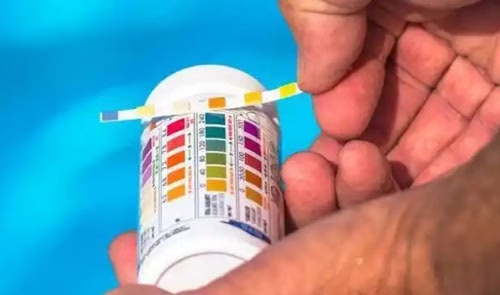
There are several over – the – counter products that contain sodium bicarbonate for treating these conditions. For example, some antacid tablets and powders have sodium bicarbonate as a key ingredient. Brands like Alka – Seltzer, which contains sodium bicarbonate along with other ingredients, are popular for quickly relieving heartburn and indigestion. These products are usually available in tablet or effervescent powder form.
However, there are some important precautions when using sodium bicarbonate for digestive issues.
- Due to its high sodium content, people with high blood pressure, heart problems, or kidney disease need to be cautious.
- Excessive intake of sodium can lead to fluid retention, increased blood pressure, and put additional strain on the kidneys.
- Also, the carbon dioxide gas produced during the reaction with stomach acid can cause belching, bloating, and in some cases, may even lead to increased pressure in the stomach, which can be uncomfortable.
It is recommended to follow the dosage instructions carefully and not to exceed the recommended amount. If the symptoms of heartburn or indigestion persist or are severe, it is advisable to seek medical advice as it could be a sign of a more serious underlying condition such as gastroesophageal reflux disease (GERD) or an ulcer.
Gastric Ulcers (Limited Use)
Gastric ulcers are open sores that develop on the lining of the stomach. While sodium bicarbonate can neutralize the hydrochloric acid in the stomach, its use in treating gastric ulcers is limited and often not the first – line treatment.
Theoretically, by reducing the acidity in the stomach, sodium bicarbonate can create a less hostile environment for the ulcerated area, potentially promoting healing. However, there are significant drawbacks. When sodium bicarbonate reacts with stomach acid, it produces carbon dioxide gas as a by – product. The build – up of carbon dioxide in the stomach can increase the pressure within the stomach. This increased pressure can be harmful in the case of a gastric ulcer as it may cause the ulcer to perforate or bleed.
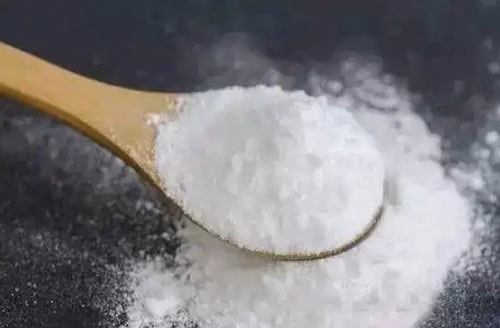
Moreover, long term or excessive use of sodium bicarbonate can disrupt the normal acid – base balance in the body. It can lead to various negative effects on the body’s normal physiological functions.
Therefore, in the treatment of gastric ulcers, other medications are usually preferred. Sodium bicarbonate may only be used in some cases as a short – term, temporary measure under the strict supervision of a healthcare provider, and usually in combination with other more appropriate medications.
2.2 Sodium Bicarbonate Cures Metabolic Acidosis
Sodium bicarbonate plays a crucial role in the treatment of metabolic acidosis by acting as a source of bicarbonate ions, which are essential for restoring the body’s acid – base balance. When administered, either orally (in mild cases) or intravenously (in more severe cases), sodium bicarbonate provides bicarbonate ions (HCO3-) to the body.

- In cases of metabolic acidosis due to kidney failure, sodium bicarbonate supplementation can help to replace the bicarbonate ions that the kidneys are no longer able to maintain at normal levels. This can improve the patient’s symptoms and overall well – being.
- In diabetes ketoacidosis, if the patient has severe acidosis (usually when the blood pH is very low, around 7.0 or lower), sodium bicarbonate may be given intravenously. However, the use of sodium bicarbonate in DKA is controversial. Some studies suggest that rapid correction of acidosis with sodium bicarbonate may have potential negative effects, such as causing a shift of potassium ions into cells, leading to hypokalemia (low potassium levels in the blood), and potentially worsening the patient’s condition. Therefore, its use in DKA is carefully considered based on the patient’s overall condition and the severity of the acidosis.
- In lactic acidosis, the treatment mainly focuses on addressing the underlying cause, such as improving oxygen supply to the tissues. However, in some cases where the acidosis is severe and not responding quickly to other treatments, sodium bicarbonate may be used as a supportive measure to help raise the blood pH and improve the patient’s physiological function.
2.3 Alkalinizing the Urine
Benefits for Kidney Health
Maintaining the proper pH of urine is crucial for kidney health, and sodium bicarbonate can play a significant role in this process by alkalinizing the urine. The normal pH of urine can range from approximately 4.5 – 8.0, and an optimal pH helps prevent the formation of various types of kidney stones and other kidney – related problems.
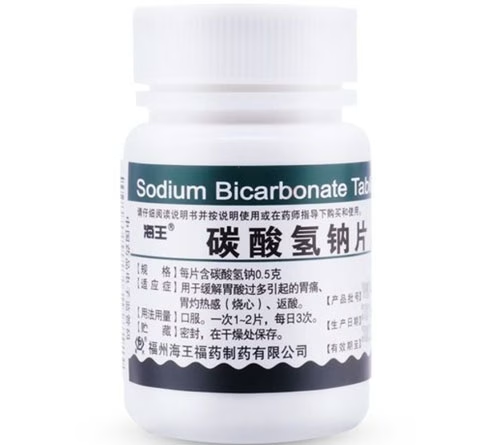
One of the main benefits of urine alkalinization is the reduction in the risk of forming certain types of kidney stones. For specific explanation please read “Can sodium bicarbonate dissolve kidney stones”.
Enhancing Drug Efficacy and Elimination
In addition to its benefits for kidney health, urine alkalinization with sodium bicarbonate can also have a significant impact on the efficacy and elimination of certain drugs. Some drugs are better excreted from the body in an alkaline urine environment.
- For example, in the case of salicylate overdose, which can occur with excessive intake of aspirin (acetylsalicylic acid), urine alkalinization is a crucial part of the treatment.
- Another example is the use of sodium bicarbonate in combination with certain chemotherapy drugs. Some chemotherapy drugs, such as methotrexate, can be toxic to the kidneys. Sodium bicarbonate can reduces the risk of these substances crystallizing in the kidneys and causing damage.
- Additionally, in some cases, urine alkalinization may enhance the effectiveness of certain antibiotics. For instance, drugs like sulfonamides are more effective in an alkaline urine environment.
2.4 Other Specialized Medical Applications
In Cardiac Arrest Situations
Sodium bicarbonate has been used in cardiac arrest situations with the aim of correcting lactic acidosis. By providing bicarbonate ions, it can help to buffer the excess acid in the body.
Additionally, it was thought that the correction of acidosis might enhance the responsiveness of the heart to other resuscitative measures. By raising the blood pH, sodium bicarbonate was hypothesized to improve the heart’s ability to respond to drugs like epinephrine and potentially increase the chances of successful resuscitation.
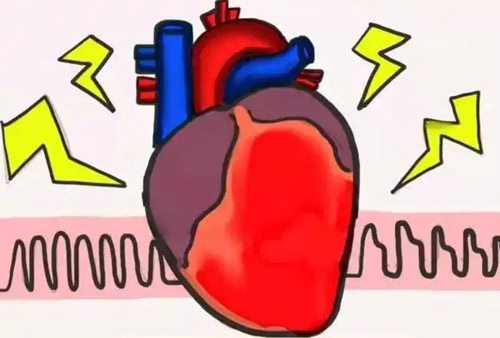
However, the use of sodium bicarbonate in cardiac arrest is controversial. Therefore, current guidelines for cardiac arrest resuscitation recommend that the use of sodium bicarbonate should be carefully considered and is generally reserved for specific situations, such as when there is known pre – existing metabolic acidosis (e.g., in patients with underlying kidney disease) or in cases of overdose with drugs that cause severe acidosis.
In Respiratory Medicine (Occasional Use)
In certain respiratory diseases, especially those associated with respiratory failure and concomitant metabolic acidosis, sodium bicarbonate may be used as an adjunctive treatment. Respiratory failure can occur in conditions such as severe chronic obstructive pulmonary disease (COPD), acute respiratory distress syndrome (ARDS), and some cases of asthma. Sodium bicarbonate may be used to help correct the metabolic acidosis component.

However, similar to its use in other conditions, the use of sodium bicarbonate in respiratory medicine is not without risks. Therefore, its use is carefully monitored, and it is often used in combination with other treatments aimed at improving oxygenation and ventilation, such as mechanical ventilation, bronchodilators, and corticosteroids in the case of respiratory diseases.
3. Administration Methods and Dosage Considerations
3.1 Oral Administration
Sodium bicarbonate is available in the form of tablets and powders over – the – counter.
Tablets are typically easy to swallow and are often preferred by patients for their portability. They can be taken with a glass of water. For example, some antacid tablets containing sodium bicarbonate are designed to be chewed before swallowing. Chewing the tablets helps to break them down into smaller particles, allowing for a more rapid reaction with the stomach acid. This can lead to a quicker relief of symptoms. However, it’s important to note that not all tablets are meant to be chewed, and patients should always follow the instructions on the label or as directed by a healthcare provider.

Powders, on the other hand, are usually dissolved in water before ingestion. This form can be more effective in some cases as the dissolved bicarbonate can start reacting with the stomach acid almost immediately. For instance, effervescent powders create a fizzy solution when dissolved in water due to the release of carbon dioxide gas. This not only makes the solution more palatable but also enhances the speed of the drug’s action.
When taking sodium bicarbonate orally, it is crucial to follow the recommended dosage. Over – consumption can lead to various side effects. As mentioned earlier, the high sodium content in sodium bicarbonate can be a concern for patients with certain health conditions. Therefore, it is essential to take the correct amount as directed, usually in small, spaced – out doses, and not to exceed the recommended daily limit.
3.2 Intravenous Administration
Situations Requiring IV Delivery
Intravenous (IV) administration of sodium bicarbonate is reserved for more serious medical situations where rapid and precise correction of acid – base imbalances is necessary.

Precautions and Monitoring during IV Infusion
When administering sodium bicarbonate intravenously, strict precautions must be taken to ensure the safety and effectiveness of the treatment.
- The concentration of the sodium bicarbonate solution is carefully controlled. Commonly used concentrations range from 1.5% (isotonic) to 8.4% (hypertonic). The choice of concentration depends on the severity of the acidosis and the patient’s overall condition.
- The rate of infusion is also crucial. A too-rapid infusion can lead to several complications.
- During the IV infusion, the patient’s vital signs, including heart rate, blood pressure, respiratory rate, oxygen saturation,and regular blood tests are performed to assess the patient’s acid – base status, electrolyte levels (especially sodium, potassium, and calcium), and kidney function. By closely monitoring these parameters, the medical team can adjust the dosage and rate of infusion as needed to ensure the best possible outcome for the patient.
4. Side Effects and Risks
4.1 Common Side Effects
Gastrointestinal Discomfort
One of the most frequently experienced side effects of sodium bicarbonate use is gastrointestinal discomfort. When sodium bicarbonate reacts with the hydrochloric acid in the stomach, it produces carbon dioxide gas as a by – product. This gas can cause symptoms such as belching and a feeling of bloating.

Moreover, the neutralization of stomach acid by sodium bicarbonate can sometimes lead to a phenomenon known as rebound hyperacidity or secondary acid secretion.
Fluid and Electrolyte Imbalances
Long – term or excessive use of sodium bicarbonate can pose a significant risk of fluid and electrolyte imbalances in the body. When large amounts of sodium bicarbonate are ingested, it can lead to edema, which is the swelling of tissues, often seen in the ankles, feet, and hands.
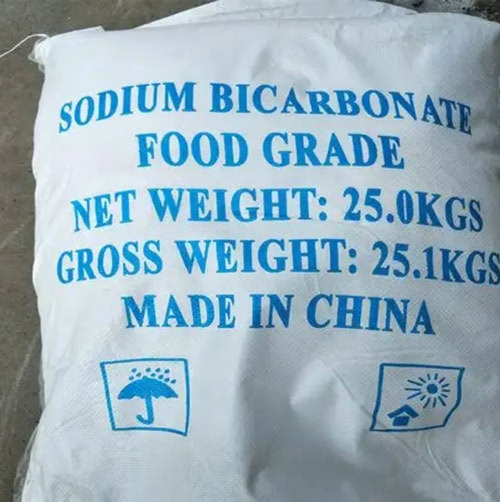
In addition to edema, the excessive sodium intake can also have a negative impact on blood pressure. For patients with pre – existing hypertension or those at risk of developing high blood pressure, the additional sodium load from sodium bicarbonate has potential risk of raising their blood pressure (For more specific explanation , please read “Can sodium bicarbonate cause high blood pressure”).
Furthermore, excessive use of sodium bicarbonate can disrupt the balance of other important electrolytes in the body. For example, it can affect the levels of potassium and calcium. Hypokalemia can cause a variety of symptoms, including muscle weakness, fatigue, and abnormal heart rhythms. Similarly, the balance of calcium in the body can be affected, which can have implications for bone health and normal physiological functions that rely on proper calcium levels, such as nerve impulse transmission and muscle contraction.
4.2 Rare but Serious Complications
Metabolic Alkalosis
Metabolic alkalosis is a rare but potentially serious complication that can occur with the overuse of sodium bicarbonate.
The symptoms of metabolic alkalosis can be diverse and may include confusion, irritability, muscle twitching, and in severe cases, seizures.
Kidney – related Issues
For patients with pre – existing kidney problems, the use of sodium bicarbonate can be particularly risky. In patients with impaired kidney function, such as those with chronic kidney disease or kidney failure, the kidneys may not be able to handle the additional load of sodium bicarbonate effectively.
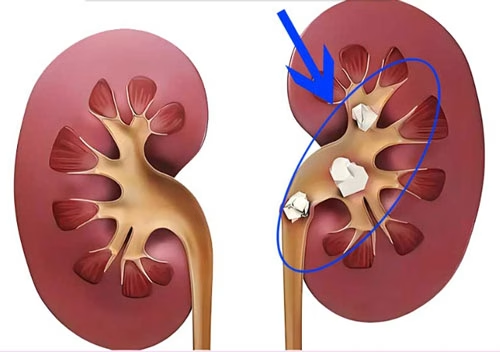
Therefore, patients with kidney disease who require sodium bicarbonate treatment need to be closely monitored, and the dosage may need to be carefully adjusted based on their individual kidney function and overall health status.
5. Research Advancements and Future Perspectives
5.1 Current Research Trends
New Insights into Old Applications
In the realm of traditional applications, recent research has been uncovering new aspects of how sodium bicarbonate functions in treating gastrointestinal diseases and metabolic acidosis.
Exploring Novel Therapeutic Avenues
The potential of sodium bicarbonate in treating cancer has been a subject of intense research in recent years.
In the field of neurological diseases, there is growing interest in the role of sodium bicarbonate. Some studies have explored its potential in treating conditions such as stroke and neurodegenerative diseases like Alzheimer’s.
5.2 Potential Developments in Sodium Bicarbonate – based Therapies
Formulation Improvements
One of the future directions in sodium bicarbonate – based therapies is the development of more advanced formulations. Currently, the common forms of sodium bicarbonate for medical use, such as tablets and intravenous solutions, have their limitations. Researchers are exploring the development of novel slow – release formulations. These formulations would release sodium bicarbonate gradually over time, providing a more sustained effect and reducing the risk of side effects such as bloating and belching.

Another area of focus is the development of targeted delivery systems for sodium bicarbonate. In the context of cancer treatment, for instance, a targeted delivery system could potentially deliver sodium bicarbonate directly to the tumor site. This would maximize the therapeutic effect on the cancer cells while minimizing the exposure of normal tissues to the compound, reducing the risk of systemic side effects.
Combination Therapies
Combining sodium bicarbonate with other drugs holds great promise for enhancing treatment efficacy and expanding the scope of treatment.

In cancer treatment, combining sodium bicarbonate with chemotherapy drugs may have a synergistic effect.
In the treatment of metabolic diseases, such as diabetes, sodium bicarbonate could potentially be combined with drugs that regulate blood sugar levels.
In the field of infectious diseases, there may also be potential for combination therapies with sodium bicarbonate. When combined with antibiotics, this could potentially enhance the effectiveness of the antibiotics, reducing the risk of antibiotic resistance and improving the treatment outcomes for infectious diseases.
Conclusion
Sodium bicarbonate, a seemingly simple compound, plays a multifaceted and crucial role in the medical field. Its ability to act as an acid – base regulator is at the core of its numerous applications.
Current research on sodium bicarbonate is opening up new horizons. Future developments in sodium bicarbonate – based therapies, including formulation improvements and combination therapies, are likely to expand its utility and effectiveness. As we continue to study this remarkable compound, we can expect sodium bicarbonate to play an even more significant role in improving human health.
Expand reading:

